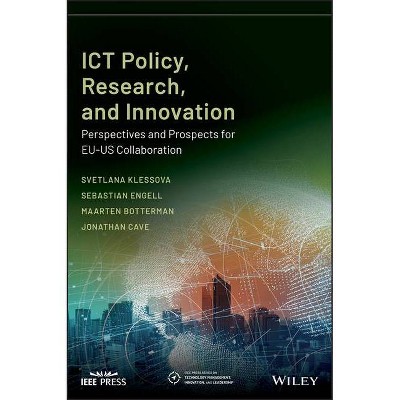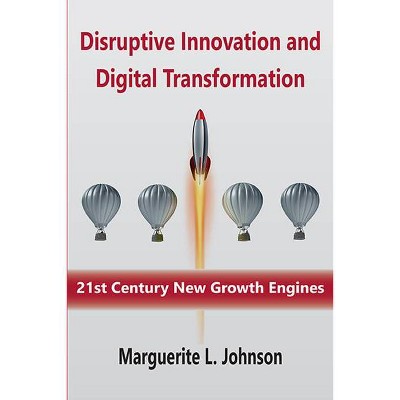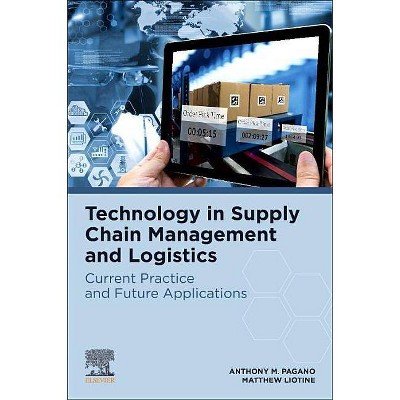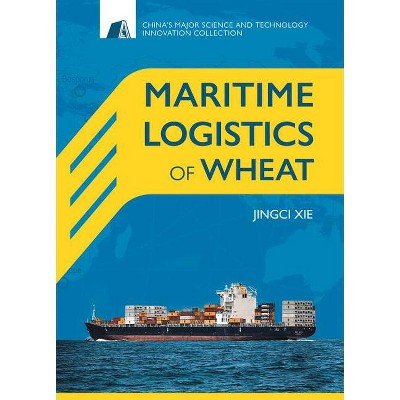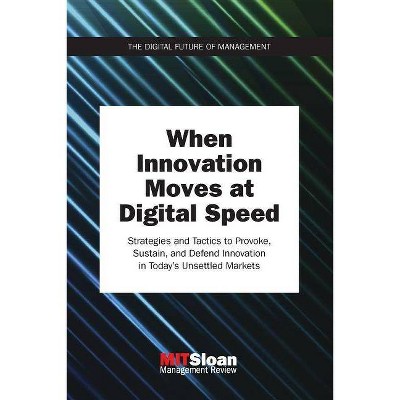The Digital Transformation of Logistics - (IEEE Press Technology Management, Innovation, and Leadership) by Johannes Kern & Mac Sullivan (Paperback)
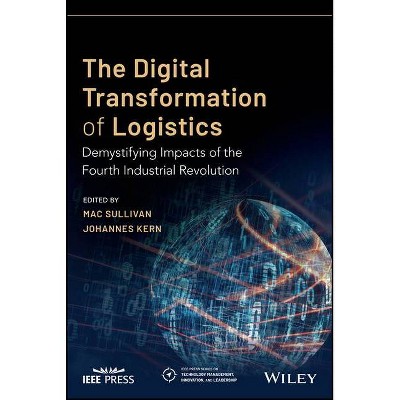
Similar Products
Products of same category from the store
AllProduct info
<p/><br></br><p><b> About the Book </b></p></br></br>"This book covers the latest trends in the changing landscape of international logistics in terms of technological developments and the effects of these changes. The authors introduce relevant technologies and related concepts and provide their expert opinion on the future impact of these technologies on the logistics field and the professionals working in this space. The book analyzes artificial intelligence, robotic process automation, Blockchain, Internet of Things (IoT), Enterprise Resource Planning systems (ERPs), Digital Marketplaces and Digital Networks as part of Industry 4.0. Real experiences in dealing with the effects of technology on jobs in the logistics industry are translated into learning points. This book equips the reader with the fundamentals to hold a conversation with their employers, customers, investors, and suppliers about how they can prepare for the disruptive forces shaping the industry"--<p/><br></br><p><b> Book Synopsis </b></p></br></br><p>The digital transformation is in full swing and fundamentally changes how we live, work, and communicate with each other. From retail to finance, many industries see an inflow of new technologies, disruption through innovative platform business models, and employees struggling to cope with the significant shifts occurring. This Fourth Industrial Revolution is predicted to also transform Logistics and Supply Chain Management, with delivery systems becoming automated, smart networks created everywhere, and data being collected and analyzed universally. <i>The Digital Transformation of Logistics: Demystifying Impacts of the Fourth Industrial Revolution</i><b> </b>provides a holistic overview of this vital subject clouded by buzz, hype, and misinformation.</p> <p>The book is divided into three themed-sections: </p> <ul> <li><i>Technologies</i> such as self-driving cars or virtual reality are not only electrifying science fiction lovers anymore, but are also increasingly presented as cure-all remedies to supply chain challenges. In <i>The Digital Transformation of Logistics: Demystifying Impacts of the Fourth Industrial Revolution</i>, the authors peel back the layers of excitement that have grown around new technologies such as the Internet of Things (IoT), 3D printing, Robotic Process Automation (RPA), Blockchain or Cloud computing, and show use cases that give a glimpse about the fascinating future we can expect.</li> <li><i>Platforms</i> that allow businesses to centrally acquire and manage their logistics services disrupt an industry that has been relationship-based for centuries. The authors discuss smart contracts, which are one of the most exciting applications of Blockchain, Software as a Service (SaaS) offerings for freight procurement, where numerous data sources can be integrated and decision-making processes automated, and marine terminal operating systems as an integral node for shipments. In <i>The Digital Transformation of Logistics: Demystifying Impacts of the Fourth Industrial Revolution, </i> insights are shared into the cold chain industry where companies respond to increasing quality demands, and how European governments are innovatively responding to challenges of cross-border eCommerce.</li> <li><i>People</i> are a vital element of the digital transformation and must be on board to drive change. <i>The Digital Transformation of Logistics: Demystifying Impacts of the Fourth Industrial Revolution </i>explains how executives can create sustainable impact and how competencies can be managed in the digital age - especially for sales executives who require urgent upskilling to remain relevant. Best practices are shared for organizational culture change, drawing on studies among senior leaders from the US, Singapore, Thailand, and Australia, and for managing strategic alliances with logistics service providers to offset risks and create cross-functional, cross-company transparency.</li> </ul> <p><i>The Digital Transformation of Logistics: Demystifying Impacts of the Fourth Industrial Revolution</i> provides realistic insights, a ready-to-use knowledge base, and a working vocabulary about current activities and emerging trends of the Logistics industry. Intended readers are supply chain professionals working for manufacturing, trading, and freight forwarding companies as well as students and all interested parties.</p><p/><br></br><p><b> From the Back Cover </b></p></br></br><p>Praise for Digital Transformation of Logistics</p> <p>Identifying the value and opportunities of digitalization within the logistics industry is the key to enable organizations to transform. A must-have in every logistics manager's bookshelf, this book gives supply chain professionals insights to lead the transformation. --<b>Benedikt Birner</b>, Senior Director of Logistics at The Schaeffler Group</p> <p>Breaking down the complexities of new technologies that are in the world today and providing contextualized examples in a rapidly-changing industry are exactly what companies need. Sullivan and Kern provide a great overview of the challenges and opportunities that logistics companies are currently being faced with. --Thomas <b>Knudsen</b>, Managing Director at Toll Group</p> <p>As moving goods around the world increasingly depends on the right way to move bits and bytes, Sullivan and Kern have aggregated a phenomenal overview of some of the most critical trends shaping global logistics today....and tomorrow. --<b>Eytan Buchman</b>, Chief Marketing Officer at Freightos</p> <p>Editors Mac Sullivan and Johannes Kern have assembled a stellar lineup of 30 contributors from practice and academia, representing more than ten countries, sharing their multi-faceted perspectives on this crucial topic.</p><p/><br></br><p><b> About the Author </b></p></br></br><b>MAC SULLIVAN</b> is the Head of Technology and Digital Promotion at NNR Global Logistics, where he leads the global team facilitating a digital transformation. A frequent lecturer of university courses and speaker at numerous international logistics events around the world, Mac is an expert from both policy and industry's point of view. Mac is pursuing his Ph.D. in Political Theory from East China Normal University and has an EMBA degree from Hult Business School. <p><b>JOHANNES KERN</b> is an affiliated professor at Tongji University, where he researches buyer-supplier relationships and the digital transformation of logistics. As the General Manager of Xiezhi Consulting, he enables international companies in China to optimize their entire supply chain, including sourcing, transportation, warehousing, and production. Johannes holds a Ph.D. from Technische Universität Darmstadt in Germany.</p>
Price History
Price Archive shows prices from various stores, lets you see history and find the cheapest. There is no actual sale on the website. For all support, inquiry and suggestion messages communication@pricearchive.us
